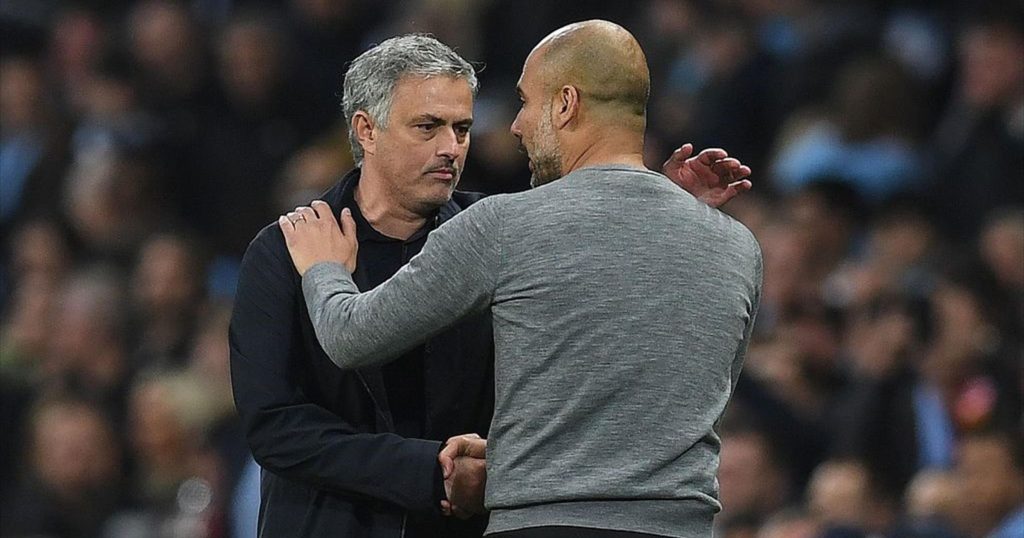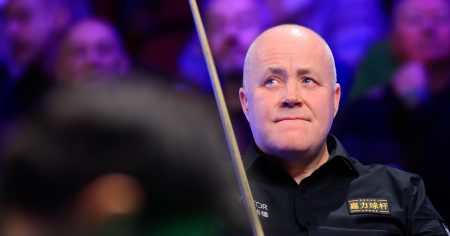Jose Mourinho, the renowned and often controversial football manager, has weighed in on the ongoing financial fair play (FFP) investigation surrounding Manchester City, expressing a complex mix of personal sentiment, respect for his rival Pep Guardiola, and a firm belief in the necessity of upholding the integrity of the sport. While acknowledging a personal friendship with Guardiola, the City manager, and emphasizing that he doesn’t wish to see the club relegated, Mourinho has underscored the importance of holding football’s “financial sharks” accountable. This seemingly paradoxical stance reflects the nuanced nature of the situation, balancing the potential personal and sporting ramifications with the broader principles of fair competition and financial responsibility within football.
Mourinho’s comments highlight the challenging intersection of personal relationships and professional ethics within the high-stakes world of elite football. He recognizes the devastating impact relegation could have on Manchester City – a club with a rich history, a passionate fan base, and a squad of world-class players. Furthermore, he acknowledges the human cost, recognizing the potential disruption to the lives and careers of countless individuals associated with the club, from the players and coaching staff to the administrative personnel and support staff. However, he simultaneously stresses the crucial importance of financial transparency and fair play, arguing that the alleged breaches by Manchester City, if proven true, cannot be simply ignored or swept under the rug.
The heart of Mourinho’s argument lies in the fundamental principle of fair competition. He suggests that allowing clubs to circumvent FFP regulations undermines the very fabric of the sport, creating an uneven playing field where financial power trumps sporting merit. This, he argues, devalues the achievements of other clubs who diligently adhere to the rules, and ultimately diminishes the overall competitive integrity of the game. He uses the metaphorical term “financial sharks” to characterize those who exploit loopholes and manipulate financial regulations for an unfair advantage, portraying them as predators threatening the health and sustainability of the football ecosystem. This evocative language emphasizes the seriousness of the allegations and reinforces Mourinho’s call for accountability.
Mourinho’s stance also reflects a broader debate about the role of money in modern football. The influx of vast sums of money from wealthy owners has transformed the landscape of the sport, creating a widening gap between the financial elite and the rest of the pack. While this investment has undoubtedly elevated the quality of the game in certain respects, it has also raised concerns about the increasing commodification of football and the potential erosion of traditional values. Mourinho’s call for financial justice suggests a desire to restore a sense of balance and fairness to the sport, ensuring that financial power does not become the sole determinant of success.
In elaborating on his perspective, Mourinho likely draws parallels to his own experiences navigating the complexities of football management. Having managed some of the world’s biggest clubs, he has witnessed firsthand the pressures and temptations associated with competing at the highest level. He understands the desire to build a winning team and the allure of unlocking greater financial resources. However, his comments suggest a firm belief that success must be achieved within the boundaries of fair play and financial responsibility. He implies that true sporting achievement is not solely measured by trophies and titles but also by the integrity and ethical conduct displayed along the way.
Ultimately, Mourinho’s comments represent a significant contribution to the ongoing discussion surrounding financial fair play in football. He articulates a nuanced perspective that acknowledges the personal and professional dilemmas involved, while firmly advocating for the principles of fairness, transparency, and accountability. His words resonate with those who believe that the integrity of the sport must be protected and that financial regulations should be enforced rigorously to prevent clubs from gaining an unfair advantage. The outcome of the Manchester City investigation will undoubtedly have far-reaching implications for the future of football, shaping the balance of power and influencing the way clubs operate financially in the years to come. Mourinho’s intervention highlights the crucial importance of this debate, reminding us that the pursuit of sporting excellence must always be tempered by a commitment to ethical principles and financial responsibility.














